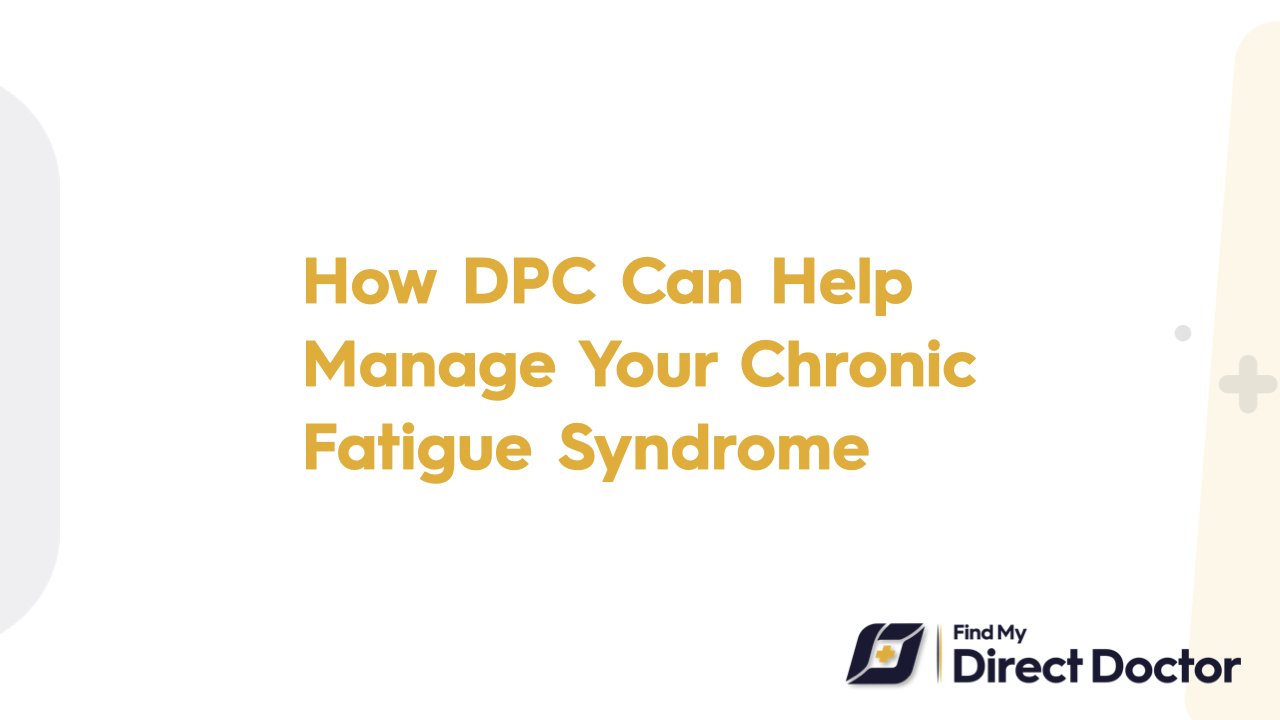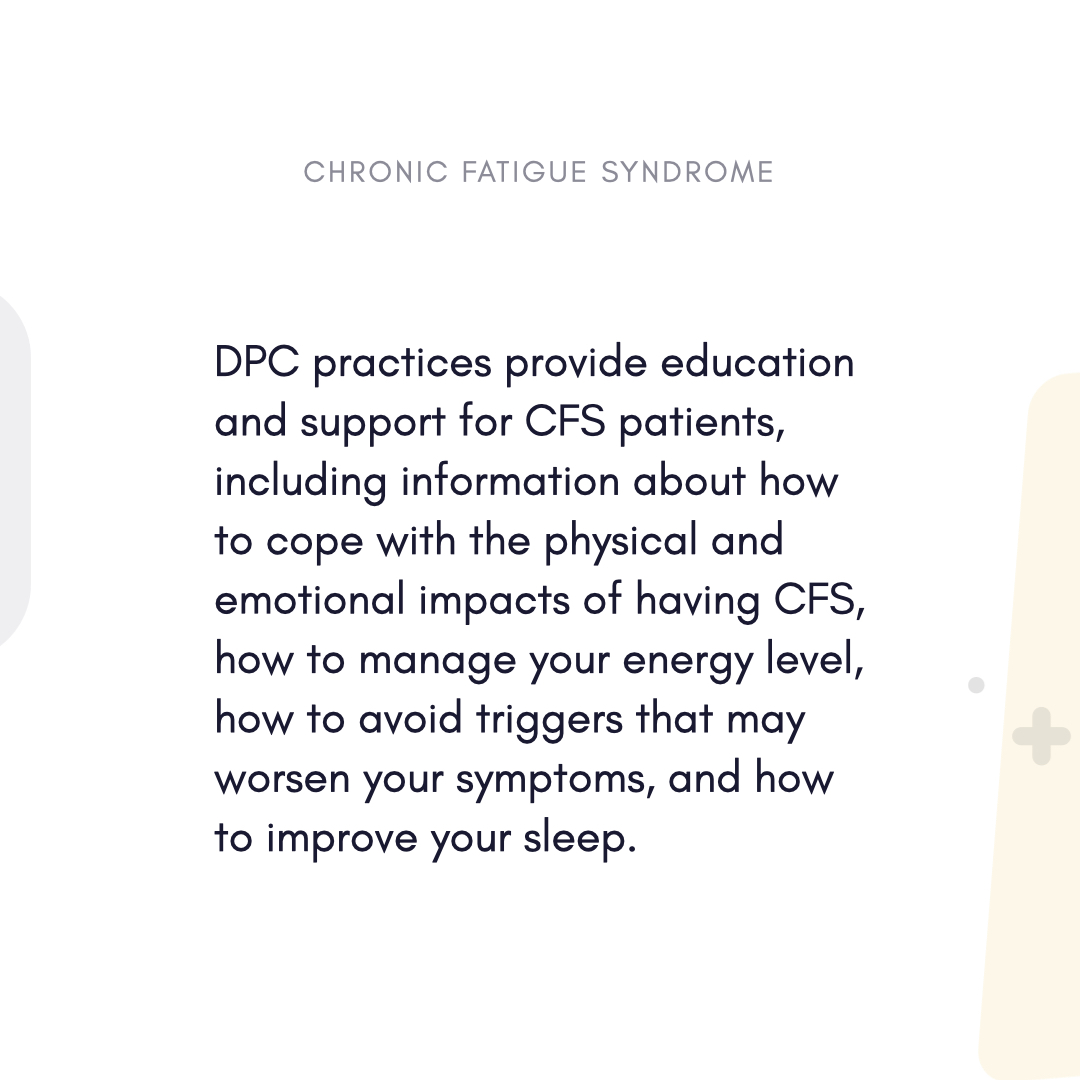Chronic Fatigue Syndrome and Direct Primary Care (DPC): A Path to Personalized Care
Six months or more of persistent, inexplicable tiredness define the complex and incapacitating disorder known as Chronic Fatigue Syndrome (CFS), sometimes referred to as Myalgic Encephalomyelitis (ME/CFS). Typical symptoms include general pain, poor refreshing sleep, cognitive dysfunction ("brain fog"), and post-exertional malaise—a severe energy "crash" following little activity. While the exact origin is yet unknown, treating CFS calls for a patient-centered approach—a need Direct Primary Care (DPC) is especially suited to meet.

How DPC Enhances Management of Chronic Fatigue Syndrome (Accessible, Continuous Care)
- Extended visits: DPC practitioners spend 30–60 minutes per visit (vs. 10–15 minutes in traditional care) for in-depth symptom discussions and treatment adjustments.
- Virtual support: Telehealth, email, or phone check-ins reduce physical strain for patients prone to post-exertional setbacks.
- Specialist coordination: Simplify referrals to neurologists, pain management experts, etc., ensuring integrated care.
Tailoring Personalized Strategies for CFS (DPC Framework)
- Energy management: Collaborate on pacing techniques to avoid symptom flares from overexertion.
- Nutritional guidance: Advise dietary changes, sleep hygiene, and supplements (e.g., magnesium, CoQ10) to address deficiencies.
- Mental health integration: Incorporate mindfulness, cognitive-behavioral therapy (CBT), or counseling for comorbid anxiety/depression.
- Comorbidity management: Address fibromyalgia, orthostatic intolerance, or chronic pain via lifestyle changes, physical therapy, or medications.
Why DPC Strategies Work for Chronic Fatigue Syndrome (Key Advantages)
- Rapid adjustments: Quick provider access enables fast treatment changes to prevent prolonged symptom flares.
- Cost transparency: Monthly fees (typically USD 50–150) eliminate copays/surprise bills, easing financial strain.
- Trust-based relationships: Continuity with one provider fosters mutual understanding and proactive care.
Limitations of DPC for CFS (Important Notes)
- Does not replace advanced diagnostics, specialist interventions, or emergency insurance coverage.
- Patients should retain additional insurance for broader healthcare needs.
Final Notes (Empowering CFS Patients)
- DPC offers a compassionate, flexible framework for CFS management by prioritizing accessibility, customization, and holistic support.
- Seek a DPC provider experienced in chronic illness to align care with your unique needs.






